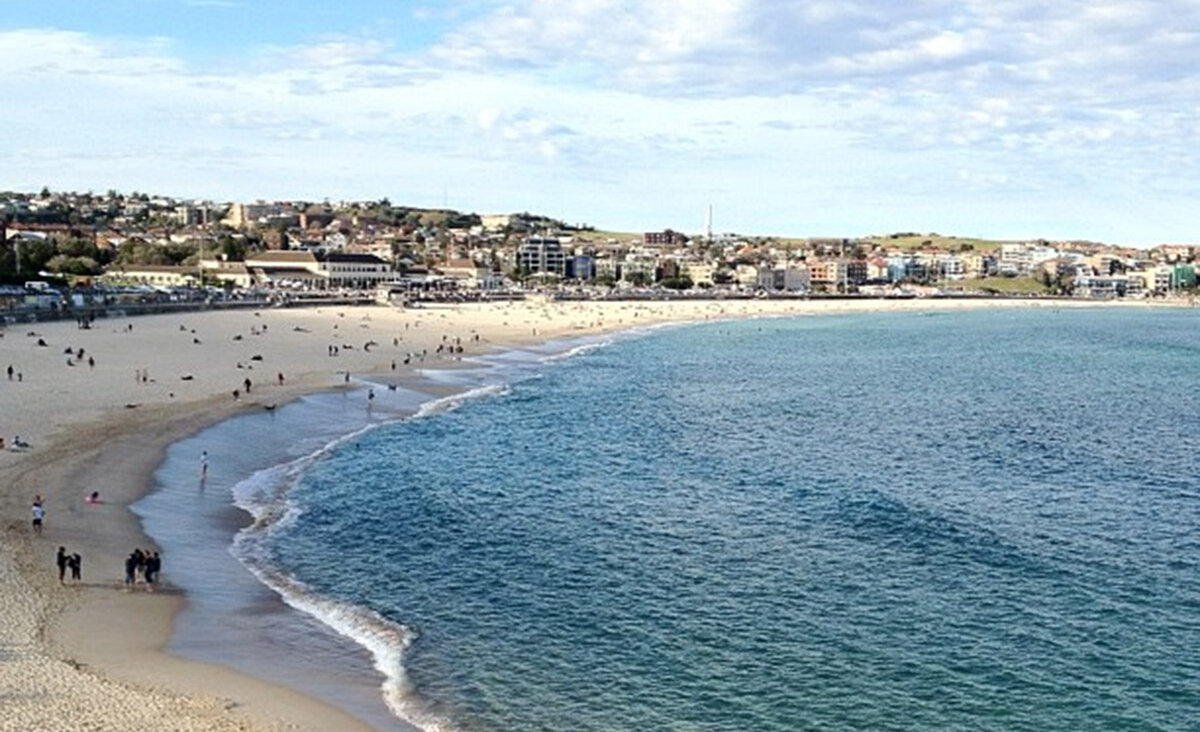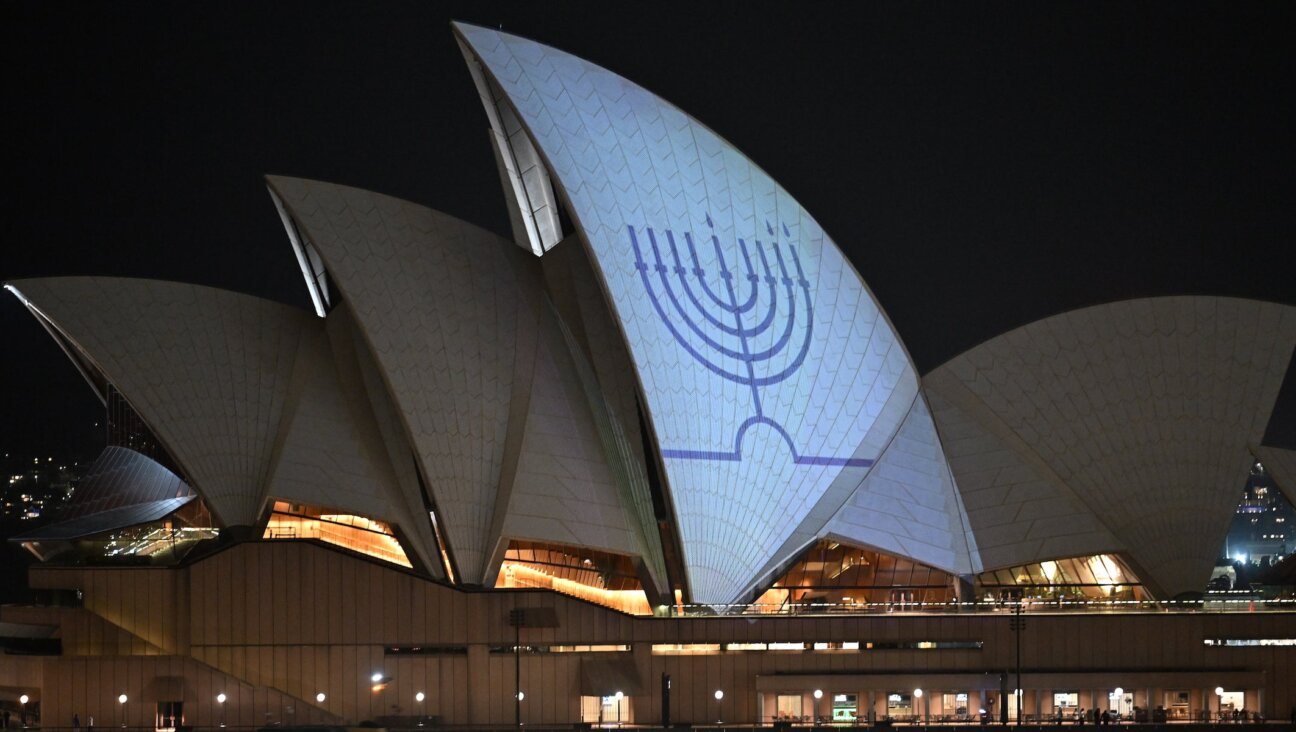French Jews Wary of Motives Behind Treatment of Arafat
PARIS — Americans were busy electing the leader of the free world this week, but French Jews had a different foreign dignitary on their minds: Yasser Arafat.
The Palestinian leader arrived in France last week, after President Jacques Chirac eagerly accepted Arafat’s request for access to medical treatment. Chirac proudly framed the decision as an example of French humanitarianism, but local Jews were more cynical in their take on the situation.
“This is another example of France sucking up to the Arab world,” said Sonia Fellous, an expert on Hebrew manuscripts at the prestigious state-funded CNRS research center in Paris. “Don’t think for a second that this is humanitarian. It is purely political. And this does not make Jews in France feel great. My friends and I have been talking a lot about this, and we all feel the same way.”
The CRIF, the umbrella group of Jewish organizations in France, has refused to comment on Arafat’s presence in the country. But interviews with French Jews suggests that Fellous is not alone in his disgust over Chirac’s decision.
Arafat is being treated at Percy military hospital outside Paris, in the southern suburb of Clamart. French and Palestinian sources are saying that Arafat could remain in the hospital for a full month.
Several Arab and French groups have been holding nightly candlelight vigils outside the main gate to show their support for Arafat. They did not show up on Monday, which was a national holiday in France, but a group of about 50 masked Jewish militants did. They shouted anti-Arafat slogans and clashed with police very briefly before leaving.
According to a police spokesman, the demonstrators belonged to a French group known as the Jewish Defense League, an extremist group. No arrests were made.
Dozens of policemen are stationed in front of the main gate and posted all around the large hospital while conducting regular patrols.
The scene outside the hospital, where he has been undergoing tests for a blood disorder since October 29, has been generally calm. Throngs of journalists and satellite broadcast trucks are grouped outside the front gates of the large hospital, at least 300 meters from the main entrance. The Palestinian Authority’s general delegate to France, Leila Shahid, makes an announcement to the press most afternoons, concerning the state of Arafat’s health.
On Tuesday, she said that the Palestinian leader was feeling well enough to undergo further testing, with the results possibly to be announced Thursday. His white blood cell levels are better, which indicates that he does not have leukemia, but he still has digestive problems, Shahid said. She added that Arafat is well enough to talk to his doctors, colleagues and foreign heads of state. At least one Palestinian official from Ramallah, Arafat’s spokesman, Nabil Rudeineh, is currently in Paris.
Some legislators have begun questioning who would pay for Arafat’s stay at the hospital. The Union of Jewish Employees and Professionals, a pro-Israel lobby group, issued a statement Tuesday that it was “one thing for France to provide care for Yasser Arafat, but it’s another if some taxpayer is paying the bill. That is why we are calling on the government to publicly announce the cost of this operation.”
The general French population seems to have no objections to Arafat being in the country, but has not taken to the streets to support his presence either.
“I’m surprised there have not been marches to support him, either from the French or Arab communities here,” said Alice Metral, a junior high school English teacher. “The French think Arafat is a martyr. They just don’t see how little he has done for his people. And I can’t wait to see Chirac holding his hand at his bedside.”
According to news reports, Rudeineh said that Chirac called Arafat on Monday to see how the ailing Palestinian leader was feeling.
Some local Jews interviewed by the Forward dismissed criticism of Chirac.
“France has a tradition as a terre d’asile, a haven for asylum seekers and people who need help,” said Daniel Klapish, a 56-year-old dentist. “We have the best medical care in the world, so it is normal to make this humanitarian gesture.”
On Tuesday, a commentator on a Jewish radio station in Paris, Raphael Dray, suggested that Chirac was doing what he could to maintain some kind of influence on proceedings in the Middle East, in an effort to counter America’s dominance in the region.
Guy Kopnicki, a well-known editor at the weekly magazine Marianne and the author of a top-selling book on antisemitism in France, sounded a similar theme.
“France wants to be the country of reference in the Middle East, especially for Syria, “ Kopnicki said. “And there has been activity recently in working with Syria. Plus, French politics are now pretty much openly hostile towards Israel, though Ariel Sharon has facilitated that. But I do believe it is a humanitarian gesture to treat Arafat here, especially since medical treatment is of superior quality here. And such gestures have always been a part of French politics.”
The editor rejected any suggestion that the decision to admit Arafat reflected hostility toward Jews on the part of the French government. “This is not provoking any danger for French Jews,” Kopnicki said. “The overall climate is tough enough on a daily basis, but this will not make it worse. And at least, no one else in the Arab world will think about launching terrorist attacks in France.”
But Simone Bendahan, who runs a clothing-buying office in Paris’s large garment center, said that Arafat’s presence was a cause for concern.
“We live in a nasty world,” Bendahan said. “In the States you have Bush and the war in Iraq and everybody is affected, but this business with Arafat is scary for Jews here. There are antisemitic acts and swastikas on tombstones here, and the French can’t seem to do anything about it, but Arafat gets flown in like an angel. Chirac is just proving to Arab voters here in France that he is pro-Palestinian.”
With reporting by the Jewish Telegraphic Agency.















